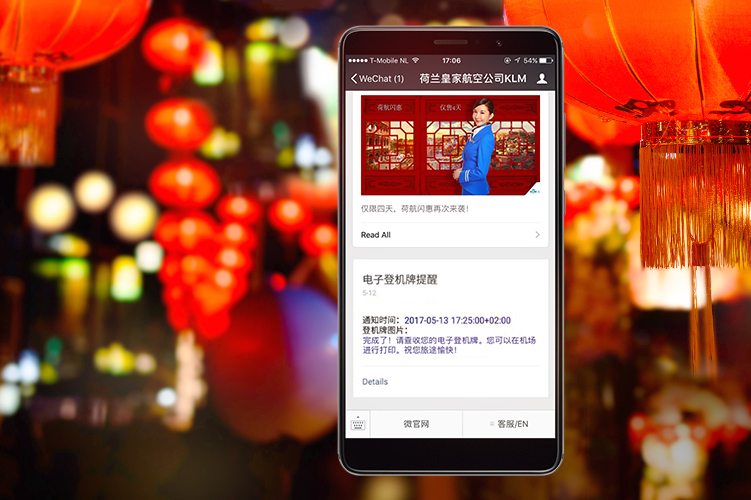KLM Becomes Among the First Non-Chinese Airlines to Accept WeChat Pay

Skift Take
KLM is a little less reliant on Chinese customers than other major airlines, but it's good to see the Dutch carrier taking the chance on a new way of accepting payments. We're betting it'll work out well for KLM. And we suspect other airlines will follow.
Dutch airline KLM has begun allowing Chinese passengers to use WeChat Pay to buy airfare. It starting doing so quietly on Monday, without advertising the new functionality, or even sending a press release.
And yet, in the last few days, the airline estimated 20 to 30 percent of its Chinese customers used WeChat Pay for their airfare, preferring a payment platform embedded into China's top social media site over more traditional options. Chinese consumers use WeChat Pay for many types of purchases, so they didn't need to be told about KLM's new functionality. They saw it was there, and used it.
"They know how to do that because it's part of their lives," Karlijn Vogel-Meijer, who directs KLM's social media strategy, said in an interview. "The way the Chinese do business, and the way the Chinese use online and social tools is something we can learn a lot from."
KLM, which announced Thursday it is accepting WeChat Pay, is hoping it may spur demand for flights from Shan
